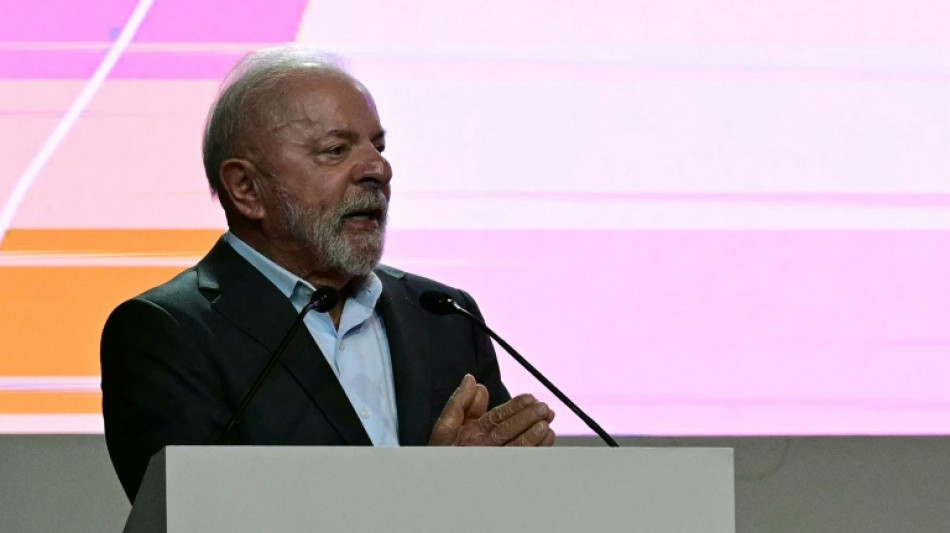

Brazil's 'action agenda' at COP30 takes shape
Instead of landing a new major climate deal, Brazil is banking on an "action agenda" at the UN's COP30 conference to spur nations and businesses to deliver on existing commitments.
The annual Conference of the Parties meetings traditionally conclude with a headline-grabbing pledge -- the Paris Agreement to limit warming to well below 2C above pre-industrial levels, or the Dubai deal to transition away from fossil fuels, to name a few.
But with the United States shunning the event and appetite for more climate ambition waning among other countries, Brazil is pushing for voluntary action at COP30.
Here are some of the announcements made so far at the gathering hosted by Brazil in the Amazon city of Belem:
- Forest fund -
Brazilian President Luiz Inacio Lula da Silva announced during a leaders' summit in Belem last week -- even before COP30 officially started -- the launch of the Tropical Forests Forever Facility (TFFF).
The investment fund, which aims to reward tropical countries that protect their rainforests, has received more than $5 billion in pledges.
Ultimately, Brazil is seeking to create a $125 billion fund that would pay out a share of profits to developing countries for every hectare of forest they leave standing.
Private investors would also receive a return from funds invested mainly in emerging market bonds.
The Rainforest Action Network (RAN) welcomed the TFFF's objective but warned the fund "cannot succeed while banks and investors remain free to bankroll deforestation".
"Without strong regulation to stop the flow of finance to destructive industries, the TFFF risks becoming yet another well-meaning mechanism trapped in a broken system," said RAN forests and finance director Tom Picken.
- Methane pledges -
Slashing methane emissions -- the second-largest contributor to climate change after carbon dioxide -- is considered one of the fastest ways to curb global warming.
Although it remains in the atmosphere for about 12 years, the "super pollutant" is roughly 80 times more potent than CO2 over a 20-year period.
At COP30, seven countries -- Britain, France, Canada, Germany, Norway, Japan and Kazakhstan -- signed a statement vowing to achieve "near zero" methane emissions across the fossil fuel sector.
The pledge calls for robust measurements to track methane emissions, ending routine flaring (burning excess natural gas) and supporting low- and middle-income producer countries.
A separate "Super Pollutant Country Action Accelerator" was announced, aiming to "fast-track deep reductions in methane" in 30 developing countries by 2030.
The initiative aims to mobilize $150 million in grant funding and other finance.
Seven initial recipients were announced at COP30 and will receive a total of $25 million: Brazil, Cambodia, Indonesia, Kazakhstan, Mexico, Nigeria and South Africa
Separately, two international organizations, the Global Methane Hub (GMH) and the Global Green Growth Institute (GGGI), announced an initiative aimed at mobilizing more than $400 million to reduce emissions in developing countries.
The organizations said Mexico, Nigeria and Senegal will serve as models for programs that reduce methane from agriculture, and capture gas that would otherwise be flared and turn industrial waste into usable energy.
- Sustainable fuels -
The Brazilian foreign ministry announced last week the "Belem 4x Pledge on Sustainable Fuels" and said 19 countries had already signed up to it.
It said the pledge "aims to provide political support and promote international cooperation to increase at least fourfold the use of sustainable fuels by 2035, through the implementation of existing or announced policies."
The ministry said hydrogen, biofuels and e-fuels must be produced at scale and at competitive prices as part of efforts to replace fossil-based fuels in the transportation and industrial sectors.
The Climate Action Network (CAN) slammed the initiative, saying it sought to expand "dubious" fuels.
"CAN refutes the idea that bioenergy can be a universal and significant 'climate solution,'" the NGO said.
CAN said it only supports the production of hydrogen through the use of renewable energy.
P.Reed--CT



